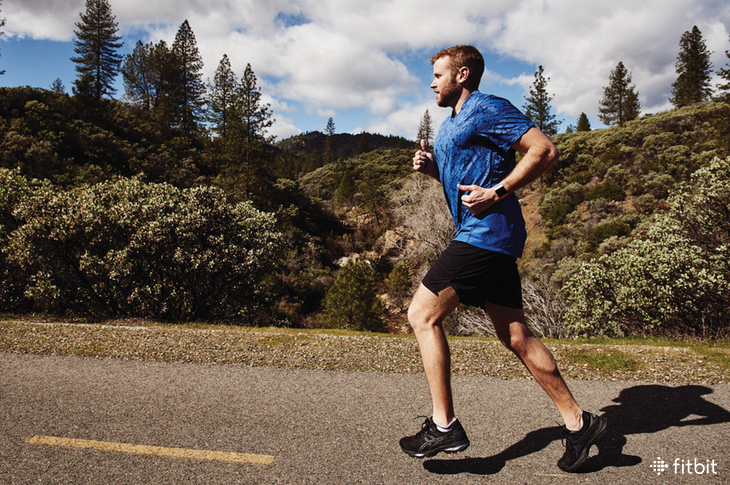
I always love working with first-time marathoners. I’ve recently been coaching Kim Peiffer, an editor at InStyle magazine, for her first marathon in New York City this November. Training her has been somewhat nostalgic. The emotions first-time runners experience while training for their big day run the gamut—from anxious and excited to intimidated, nervous, oreven a slight sense of dread. I was no different.
I’ll never forget getting on the bus going to the start of my first 26.2-mile race in 2007 at the London Marathon. I remember saying goodbye to my wife and parents and being so overwhelmed with emotion that I began to tear up. Your first marathon is a one of a kind experience. As my teammate Deena Kastor—Olympic Bronze Medalist in Athens Olympic Marathon and US record holder for the marathon—told me before my first marathon, “You only get one chance to make a first impression.” Make your experience a positive one by avoiding these all-too-common newbie mistakes.
Going Out Too Hard
The most talked about and obvious mistake first-time marathoners make is going out too hard. Excitement is important, but don’t let it become your downfall. Technology has come so far from the days when I had to run with a clunky chest strap and brick-sized watch weighing me down. With your sleek-fitting Fitbit tracker, you can see your heart rate in real time. Knowing your heart rate when you’re training, especially during your long runs, can help you gauge what you can sustain for an entire marathon. See your number climbing as you start out of the gate? Slow down. Regardless of whether the ground is flat, uphill, or downhill, I always encourage my runners to aim for an even effort (as opposed to an even pace), which is best gauged by heart rate.
Forgetting To Monitor Nutrition
The next big mistake I see first-time marathoners make is not practicing pre-race and in-race nutrition. Before you hit the ground running, fuel smart. Most first-time marathoners hit a wall because they’re carb depleted after 2 or more hours of running. The way to offset this is to both carb-load two days prior to your race and reach for easy-to-digest carbs during the race.
When you start training for a marathon, you should look on the race website and find out what kind of electrolyte beverage they will be serving on the course. Then go and pick up that exact drink to use during every long run in your training. It’s easiest for your body to digest calories on the run when you’re still somewhat fresh, even if you aren’t hungry or thirsty. Prep for this (and reduce your risk of stomach distress) by drinking 6 to 8 oz of an electrolyte beverage every 2 to 3 miles of the race and on long training runs.
Additionally, make a point to use your long runs to refine your pre-marathon meal. Find what works for you and stick with it. My wife Sara and I are fortunate to be sponsored by Cytomax and Muscle Milk, and I’ve discovered the pre-race breakfast that works best for me is a shake made with300 calories of Cytocarb and one scoop of Muscle Milk.
Wearing The Wrong Shoes
The last mistake is a game changer: shoes. Running doesn’t require a lot of gear, but it’s important to get your shoe choice right. I’ve been working with one of the kids on our local high school’s cross country team who has been struggling with an injury. As soon as I put him in the correct pair of shoes he was immediately able to run and train again.
So, which shoes should you be in? The pair that is right for you. I highly recommend going to your local running store and having them watch you run, so they can recommend a pair that is right for your mechanics. Focusing on just style and price can steer you in the wrong direction. Finding the right pair can keep you from getting injured, so if you need to pay a little more for quality, it’s money well spent. Also, remember to choose smart footwear even during your down time.
The post 3 Common Marathon Mistakes First Timers Make appeared first on Fitbit Blog.
Source: Fitbit Blog
—